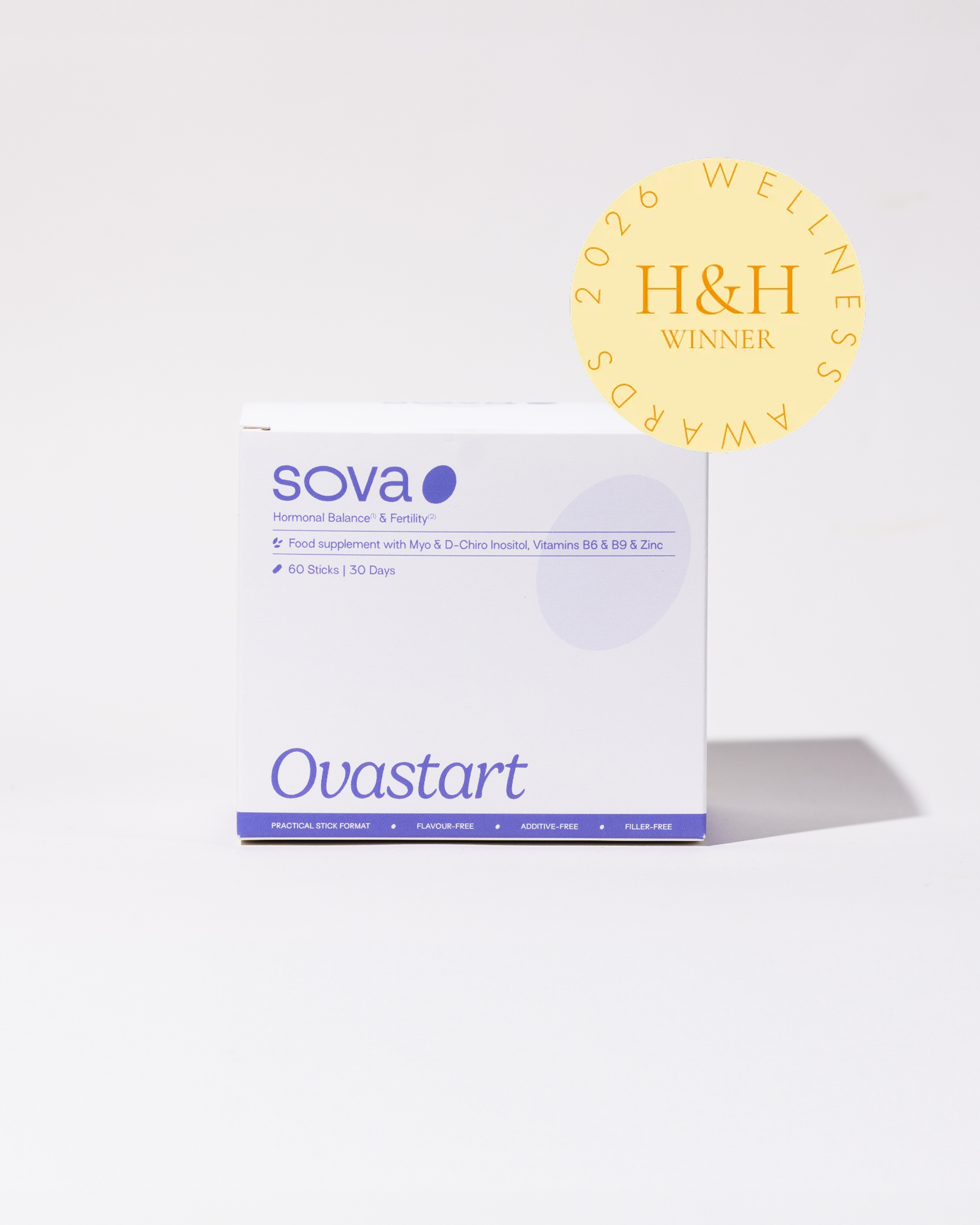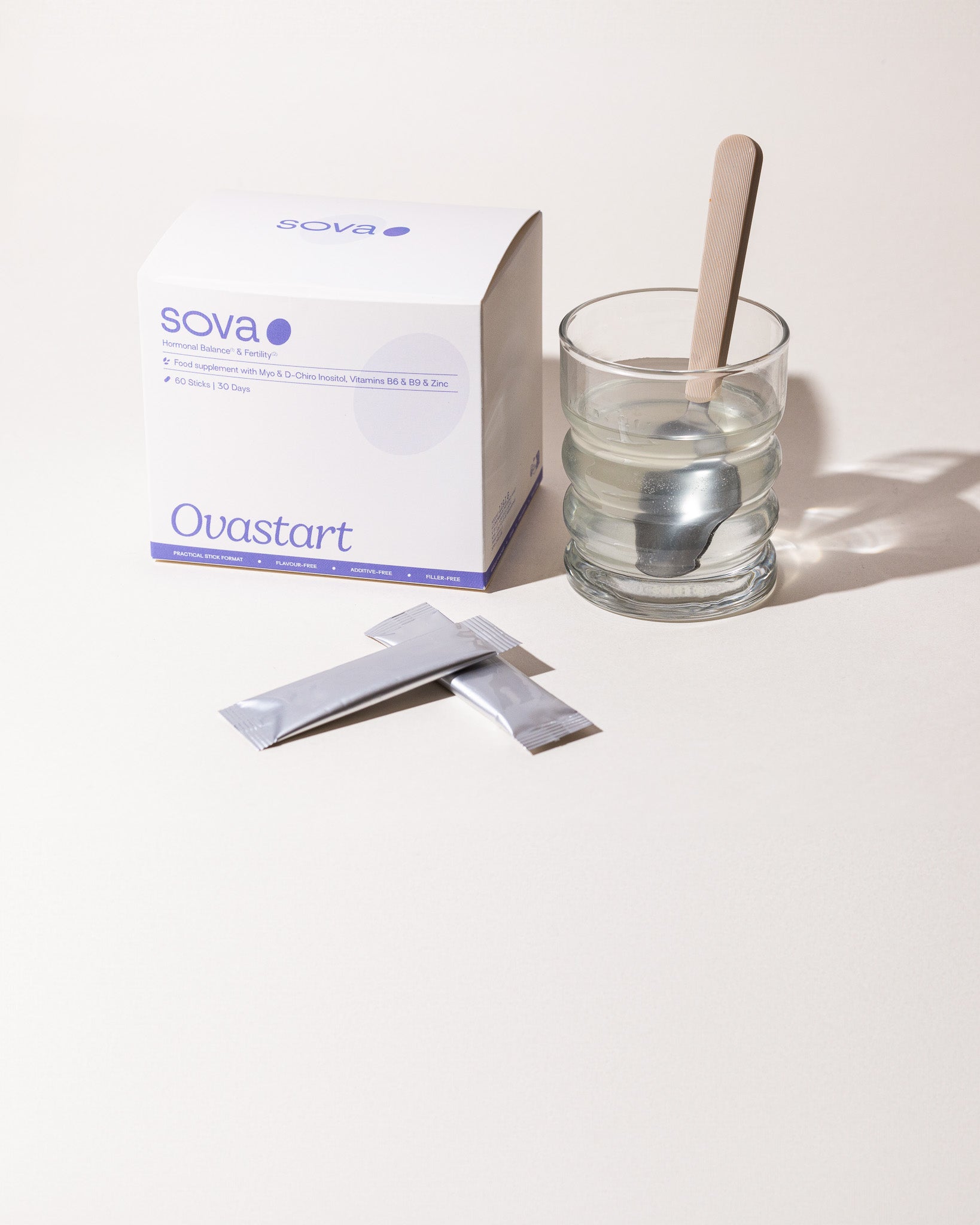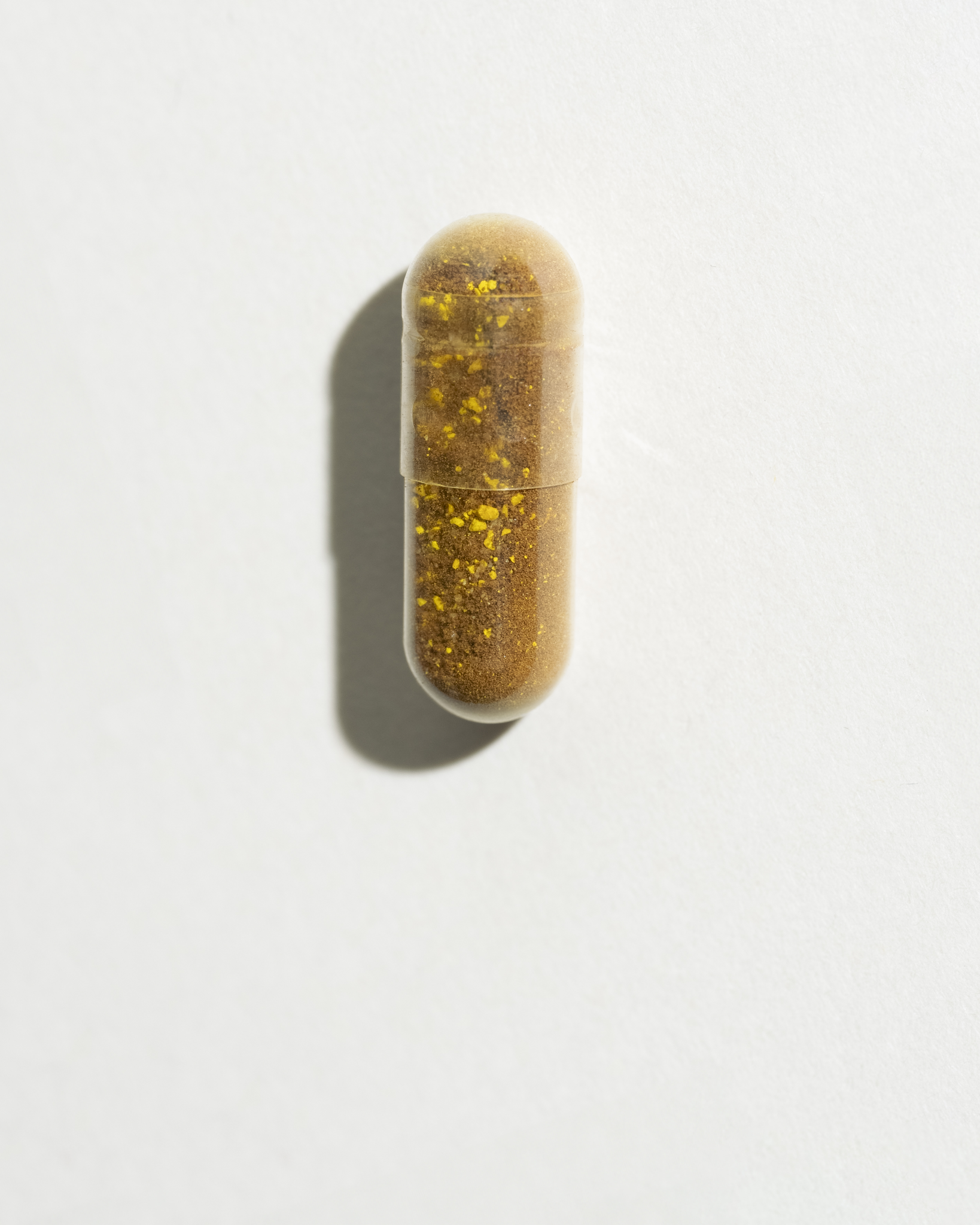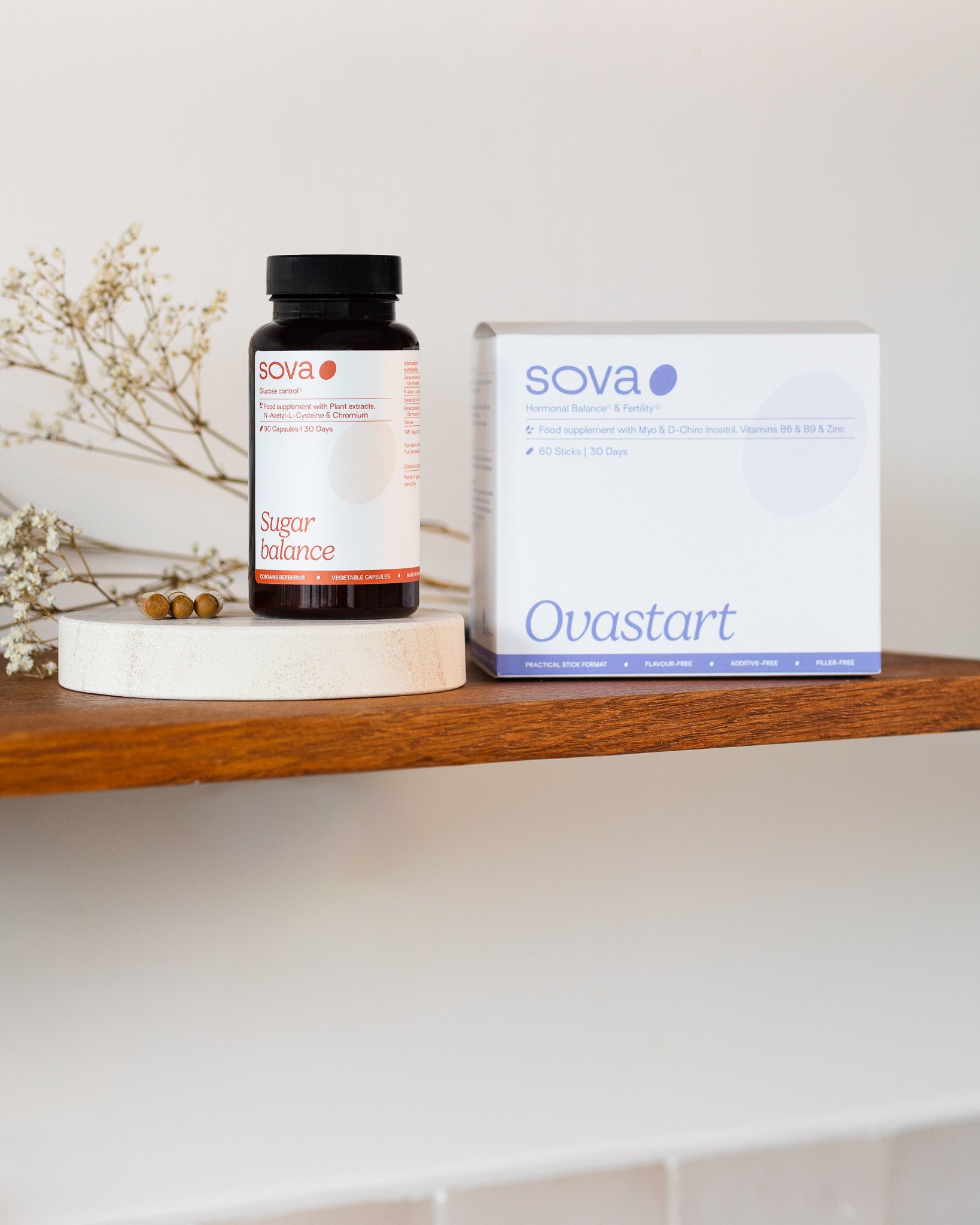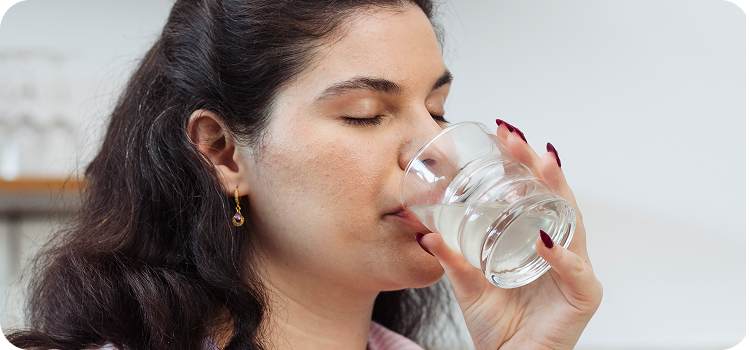Table of contents
Polycystic Ovary Syndrome (PCOS) is often associated with excess weight (70% of cases) due to insulin resistance, but it can also affect women who are considered lean.
Although less common among patients who are not overweight, PCOS can present unique challenges in lean women, and requires special attention. If you're reading this article, it might be your case too!
In this article, we will explore in detail PCOS in lean women, highlighting the differences and similarities with PCOS in overweight women.
We will also examine the specific challenges faced by lean women with PCOS, as well as medical treatments and natural approaches to manage this condition. Ready? Let’s go!
✨ Not sure where to start? Take our PCOS Product Quiz — it only takes 2 minutes and shows which supplements best support your symptoms.
Comparison of PCOS in slim and overweight women
In this section, we will discuss the main similarities and differences between PCOS in lean versus overweight women.
What does lean mean?
When we talk about lean, we generally refer to a person whose body mass index (BMI) is within the normal or low range.
BMI is a widely used indicator to assess body weight relative to a person’s height. It is calculated by dividing weight in kilograms by height in meter squared (BMI = weight in kg / height in m^2).
Here is how BMI categories are generally interpreted (2):
-
Underweight: BMI < 18.5 kg/m^2
-
Normal weight: BMI between 18.5 and 24.9 kg/m^2
-
Overweight: BMI between 25 and 29.9 kg/m^2

It’s important to note that BMI does not account for body composition, particularly the distribution of fat, muscle, and water in the body. Therefore, a person can have a normal or low BMI while having significant body fat or low muscle density. Similarly, a person can have a high BMI due to a high muscle mass rather than excess body fat.
The differences between underweight, normal weight, and overweight categories primarily lie in the potential health risks associated with each category. People classified as overweight or obese have an increased risk of developing health problems such as cardiovascular diseases, type 2 diabetes, and certain cancers (3). Conversely, people classified as underweight may be more prone to nutritional deficiencies, fertility issues, and a weakened immune system (4).
For the purposes of this article, we will consider women with a BMI in the low to normal range as lean, focusing on their specific challenges. If this is your case, keep on reading!
Differences and similarities in symptoms and manifestations
In this section, we will outline the similarities and differences in diagnostic criteria and symptoms of PCOS in lean women compared to “standard” PCOS.
Diagnostic criteria for PCOS
Whether you are lean or carry more weight, the diagnostic criteria for PCOS are generally established by the Rotterdam consensus (if you’re unsure how PCOS is diagnosed, read our full guide: How is PCOS diagnosed?).
Diagnosing PCOS in lean women can be more challenging than in those who are overweight or obese because doctors often automatically associate PCOS with weight gain. However, the same physical manifestations are generally observed in both groups of patients. Being considered lean does not mean you have fewer PCOS-related problems, nor does it suggest you are at less risk of experiencing the same medical complications as your fuller-figured counterparts. (7)
Physical manifestations of PCOS
It’s worth noting that about 80% of women with PCOS are either overweight or obese (8). This means that in roughly 20% of cases, you can have PCOS yet maintain what is considered a normal or even low weight according to your BMI.
Lean women with PCOS can present with symptoms similar to those seen in overweight women, such as irregular menstrual cycles, elevated levels of androgens (male hormones produced by the ovaries or adrenal glands), and insulin resistance. However, these symptoms might manifest differently or be perceived differently in lean women compared to those who are overweight.
For instance, if you are lean and have PCOS, the signs of hyperandrogenism (excess levels of male hormones), such as acne or hirsutism, may be more apparent because there is less adipose tissue to mask these symptoms, as might be the case in overweight women (9). Additionally, while insulin resistance is common in both groups, it may be less obvious in lean women and may not be as easily detected by standard blood tests (10). In your case, insulin resistance may not always lead to weight gain. One possible explanation is that lean women with PCOS often have normal blood sugar levels yet produce more insulin than usual when consuming carbohydrate-rich foods (11).
This is why, even if you are lean, you can still develop insulin resistance.
Chronic inflammation, another aspect of PCOS, can also be present in both lean and overweight women, although the causes of this inflammation may differ. In lean women, genetic and environmental factors may play a larger role in triggering inflammation, while in overweight women, excess adipose tissue might be a significant contributor to chronic inflammation (12).
In summary, while the diagnostic criteria and many symptoms of PCOS are similar in both lean and overweight women, there can be nuances in how these symptoms manifest and are perceived based on your weight. Weight will be a crucial factor in managing PCOS symptoms.
Specific challenges faced by lean women with PCOS
In this section, we will discuss the specific challenges you may face if you have what might be termed "lean PCOS," such as difficulties in diagnosis, managing infertility, and possible eating disorders.
Diagnostic difficulties due to weight
For lean women, PCOS can often stay underdiagnosed or even be misdiagnosed due to the emphasis on obesity in traditional PCOS diagnostic criteria. BMI, often used as an indicator of obesity, can appear normal in lean women with PCOS, leading to an underestimation of the diagnosis (13).
Furthermore, as previously mentioned, lean women might present with less obvious or different symptoms compared to overweight women, making the diagnosis more complex (6). This is particularly true for insulin resistance, as discussed earlier. Therefore, it is essential that healthcare professionals remain vigilant regarding the clinical manifestations of PCOS in lean women and employ a more holistic and individualised approach to ensure an accurate diagnosis.
Managing infertility in lean women with PCOS
If you have "lean PCOS," you may face unique challenges in managing infertility due to your potentially insufficient body weight. Unlike overweight women who often have excess adipose tissue, lean women typically have less body fat, which can affect hormone production and regulation differently. This is particularly relevant for athletes or women who engage in high levels of physical activity, as their body fat percentage may be very low. Since oestrogens are partly produced by adipose tissue (fat), these women may not produce enough oestrogen to support ovulation (14), and they are more likely to experience irregular or even absent menstrual cycles (15).
These hormonal imbalances can significantly impact your fertility. For example, an excess of androgens, such as testosterone, can disrupt the ovulation process, leading to irregular menstrual cycles or even the absence of menstruation (16). Additionally, lower levels of oestrogen and progesterone, often associated with a low BMI in lean women, can compromise egg quality and make conception more difficult (17). This means that if you are lean or very lean, you may produce fewer oestrogens and progesterone, which are necessary for a healthy menstrual cycle.
However, it is important to note that many studies suggest that lean women with PCOS may respond better to infertility treatments than those who are overweight (18).
It is crucial to adopt an individualised approach that takes into account the specific characteristics of each patient, including body weight, hormonal profile, and fertility goals. Close collaboration with healthcare professionals specialising in fertility is essential to develop a tailored treatment plan and optimise the chances of conception for these women.
Eating disorders and lean women with PCOS
First and foremost, it’s important to remind you that being lean and having PCOS does not necessarily mean that you have an eating disorder such as anorexia. However, lean women with PCOS may be more susceptible to developing eating disorders due to several factors. Restrictive eating behaviours can be quite common among lean women suffering from PCOS (perhaps this resonates with you!), as they may be particularly concerned about their weight and physical appearance (18). They might feel social or cultural pressure to maintain a low weight, which can lead them to adopt restrictive diets or limit their caloric intake.
At the same time, despite being naturally slim, PCOS itself can lead to weight gain that can be difficult to control for some women due to the insulin resistance and metabolic disruptions associated with the condition (19). This involuntary weight gain can increase anxiety about body image and the fear of gaining additional weight, potentially fuelling restrictive eating behaviours and concerns about weight control. However, as previously mentioned, this is not always the case!
Lean women with PCOS may also suffer from undernutrition, especially if their BMI is below 18.5 (which classifies them as underweight). In such cases, real deficiencies in nutrients and micronutrients (vitamins, minerals) can occur, weakening overall health, leading to irregular cycles, early-onset osteoporosis, anaemia, and chronic fatigue (20).
👉 Need support? Our Ovastart supplement is formulated with inositol, vitamin B6, and folate to gently support hormonal balance and menstrual health.
Medical treatment for lean women with PCOS
In this section, we will explore the medical treatments that may be offered to you if you have “lean” PCOS. The medical treatment of PCOS in lean women is often similar to that of overweight women, but it may require specific adjustments due to the physiological and hormonal differences associated with a lower body weight. The main treatments include:
-
Managing Insulin Resistance: Remember, having a normal or low BMI does not mean you are free from insulin resistance. It’s important to have it tested through the HOMA test. Treatment may involve using medications such as metformin to improve insulin sensitivity and lower blood sugar levels.
-
Hormonal Regulation of the cycle: Lean women with PCOS can also benefit from medications aimed at regulating hormone levels, such as combined oral contraceptives to regulate menstruation and anti-androgen treatments like cyproterone acetate to reduce associated symptoms such as acne and excessive hair growth.
-
Infertility Treatment: For lean women experiencing ovulation problems, medications such as clomiphene citrate or gonadotropins may be prescribed to induce ovulation and improve the chances of conception (21).
Whether you are lean or not, it’s imperative that you receive regular medical follow-ups to monitor the progression of the condition and prevent long-term complications such as type 2 diabetes and cardiovascular issues (9). For guidance on which healthcare professionals to consult based on your situation, check out our article! It’s crucial to surround yourself with the right healthcare professionals according to your situation. Medical treatment is entirely compatible and complementary with more natural approaches to alleviating your symptoms daily.
Natural Support Strategies for Lean PCOS
In this section, we will discuss lifestyle changes you can make to ease the symptoms of PCOS. Many of these tips are similar whether you are lean or overweight with PCOS, as the symptoms often stem from the same root causes: insulin resistance and excess male hormones. However, you will also find advice tailored to maintaining a balanced weight and digestion, specific to the needs of lean PCOS. Even if you are lean, we remind you of the importance of managing PCOS-related symptoms for better hormonal balance and maintaining a healthy weight.
Diet to regulate hormones
A well-balanced diet can play a crucial role in regulating hormones in lean women with PCOS (as it does for those who are overweight 😉). Specifically, it can help manage insulin resistance and inflammation. Here are some key dietary principles to follow:
-
Choose a diet rich in anti-inflammatory foods such as fresh fruits and vegetables, leafy greens, berries, nuts, and seeds. These foods are high in antioxidants and anti-inflammatory compounds that can help reduce inflammation in your body.
-
Choose low glycaemic index (GI) foods to help stabilise blood sugar levels and reduce insulin resistance. Low-GI foods include whole grains, legumes, non-starchy vegetables, and lean proteins. Avoid processed foods, added sugars, and refined carbohydrates, which can cause blood sugar spikes and worsen insulin resistance.
-
Ensure you are getting enough lean protein, healthy fats, fibre, and essential micronutrients (vitamins and minerals) to support hormonal and metabolic health.
-
Include healthy fats such as avocados, nuts, seeds, and small oily fish rich in omega-3s. Omega-3 fatty acids have anti-inflammatory properties and can help reduce androgen levels (22) and improve insulin sensitivity (23) in women with PCOS.
-
Maintain good hydration by drinking plenty of water throughout the day. Proper hydration is essential for supporting metabolism and hormonal health (24).
We recommend consulting a specialist (such as a nutritionist, dietitian, or naturopath) to receive personalised dietary advice based on your individual needs and health goals. You can also read our article on the fundamental principles of a suitable diet for PCOS.
Digestive Issues and Maintaining a Healthy Weight
Digestive issues, particularly irritable bowel syndrome (IBS), are often linked to PCOS (25). IBS can exacerbate PCOS symptoms by disrupting digestion and nutrient absorption, which, in turn, can affect body weight. Women with both PCOS and IBS may struggle to maintain a healthy weight due to episodes of bloating, diarrhoea, or constipation, which can alter appetite and hinder efficient nutrient absorption (26).
To support digestion and help maintain a healthy weight in lean women with PCOS and IBS, a natural approach may help alleviate your symptoms:
-
Identify and eliminate potential digestive symptom triggers, such as foods high in FODMAPs (fermentable oligosaccharides, disaccharides, monosaccharides, and polyols), which are often associated with IBS.
-
Adopt a diet rich in fibres, vegetables, fruits, and fermented foods to promote better digestion and regulate bowel movements (28).
-
Incorporate medicinal herbs, such as fennel, peppermint, and ginger, which are known for their soothing effects on the digestive system, helping to reduce abdominal discomfort and supporting optimal digestion.
-
Consider taking probiotics to restore the balance of gut flora, which may be disrupted in women with PCOS and IBS (28).
Additionally, I recommend not skipping meals, especially breakfast, and including one or two healthy snacks throughout the day (around 10:30 AM and/or 4:30 PM) , such as a fresh fruit paired with a handful of almonds (crushed if necessary for your digestive system).
By incorporating these strategies into your daily routine, you can alleviate digestive symptoms that hinder nutrient absorption and prevent you from maintaining a healthy weight.
By incorporating these tips into your daily habits, you can relieve digestive symptoms that prevent proper nutrient absorption and thus prevent maintaining a healthy weight.
Managing stress and anxiety
Managing stress and anxiety is crucial for lean women with PCOS, as these factors can worsen your symptoms and disrupt your hormonal balance. Chronic stress promotes the production of male hormones, exacerbates chronic inflammation, increases insulin resistance, and disrupts your menstrual cycle.
Here are some effective strategies to help manage stress and anxiety:
-
Integrate relaxation practices, such as meditation, deep breathing, yoga, or visualisation, into your daily routine. These techniques can help calm the mind, reduce stress, and promote a sense of well-being.
-
Cultivate positive relationships with colleagues, friends, and family (whenever possible!) and share your concerns with them. Emotional support can be invaluable in coping with stress and anxiety.
-
Cut down stimulants such as caffeine and alcohol, as they can heighten anxiety and disrupt sleep (30).
-
If needed, seek guidance from a mental health professional to obtain additional support and tailored advice. There are various mental health professionals available, which can make it difficult to determine whom to consult and for what reasons.
By adopting these stress and anxiety management strategies, you can improve your mental and emotional well-being while contributing to hormonal balance and managing PCOS symptoms.
👉 More on stress management here: Managing PCOS-Related Stress.
Physical exercise and maintaining a healthy weight
Regular physical exercise is essential for lean women with PCOS to maintain a healthy weight and promote hormonal balance. Here are some important points to consider:
-
Choose physical activities you enjoy and that match your fitness level. This could include walking, running, swimming, cycling, yoga, or dancing.
-
Aim to exercise regularly, ideally several times a week. Strive for at least three sessions of moderate to vigorous activity each week, in line with health experts' recommendations (31).
-
Vary your exercises to work different muscle groups and keep your motivation high. Include strength training sessions to build muscle and improve body composition (32).
-
Regular exercise can also help regulate hormones and improve insulin sensitivity (33).
A word to the wise: before beginning an intensive exercise programme, it’s advisable to consult a healthcare professional, especially if you have other pre-existing medical conditions. If you’re wondering which sport is suitable for PCOS, check out our article on the topic!
By incorporating regular physical activity into your routine, you can not only maintain a healthy weight but also enhance your overall health, boost self-esteem, and reduce PCOS symptoms.
Use of medicinal plants and natural supplements
The use of medicinal plants and natural supplements can be beneficial if you have “slim” PCOS in complement to a holistic approach to managing the condition.

Here are some options to consider:
Inositol for PCOS
Studies have shown that inositol can help improve insulin sensitivity, regulate menstrual cycles, and promote ovulation in women with PCOS (34).
OVASTART by SOVA is a nutritional supplement designed to support hormonal and menstrual health by promoting hormone regulation and balance.
This dietary supplement is specially formulated for women facing irregular periods, premenstrual syndrome (PMS), hormonal acne, hirsutism, and chronic fatigue. It can be used in conjunction with PCOS medical treatment or as part of an assisted reproductive technology (ART) journey.
Berberine for blood sugar control
Berberine, a compound extracted from certain medicinal plants, is known for its positive effects on insulin sensitivity and blood sugar control (35). Studies have shown that berberine can help reduce insulin resistance and improve metabolic markers in women with PCOS.
SOVA has also developed Sugar Balance, a dietary supplement specifically designed to include berberine. This unique formula combines ingredients such as NAC, cinnamon, chromium, green tea, and other antioxidants.
Sugar Balance is recommended for women suffering from insulin resistance characterised by sugar cravings, rapid and unexplained weight gain, and post-meal fatigue.
Omega-3s, inflammation, and PCOS
Omega-3 fatty acids, found in oily fish such as salmon, sardines, and flaxseeds, can help reduce inflammation and improve insulin sensitivity (22). If you have difficulty eating enough omega-3s through your diet, you might consider taking a high-quality omega-3 supplement.
📌 Unsure which supplement to start with? Take our PCOS Product Quiz — you’ll get a personalised recommendation in 2 minutes.
Conclusion
As we explored the issues related to PCOS in lean women, we highlighted the unique challenges you face, as well as the similarities and differences compared to the ones faced by overweight women. From managing infertility to the risk of eating disorders, and exploring medical and natural treatment options, we examined the multiple facets of this complex condition.
Remember that each woman living with PCOS has a unique experience, and treatment approaches must be tailored to your individual needs. By adopting a holistic approach that incorporates weight management, a balanced diet, stress management, physical exercise, and the use of medicinal plants and natural supplements, it is possible to find balance and relief from symptoms.
Lastly, I would like to send you a message of hope and support. You are not alone in your journey. By working with knowledgeable healthcare professionals, finding supportive communities, and taking steps to manage your health, you can find solutions and live your life fully despite the challenges posed by this condition. Stay strong, be patient, and don’t hesitate to ask for help when you need it. You deserve to be heard, understood, and supported in your journey towards well-being. 🙂
Scientific references
SOVA was created by two sisters with PCOS who wanted products that truly worked. Our formulas are developed in-house with women’s health and micronutrition experts, using ingredients backed by clinical studies and compliant with European regulations.
- Built by women with PCOS, we know the reality of the symptoms.
- Clinically studied, high-quality ingredients, including patented forms like Quatrefolic® and an optimal Myo-/D-Chiro Inositol ratio.
- Holistic support for hormonal balance, metabolic health, inflammation, mood and cycle regulation.
- Transparent, science-led formulas with no unnecessary additives.
